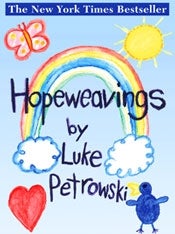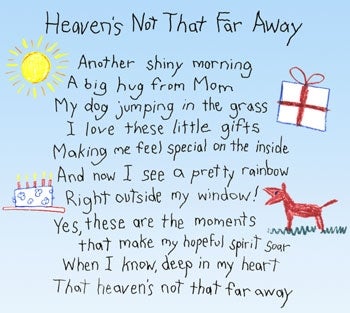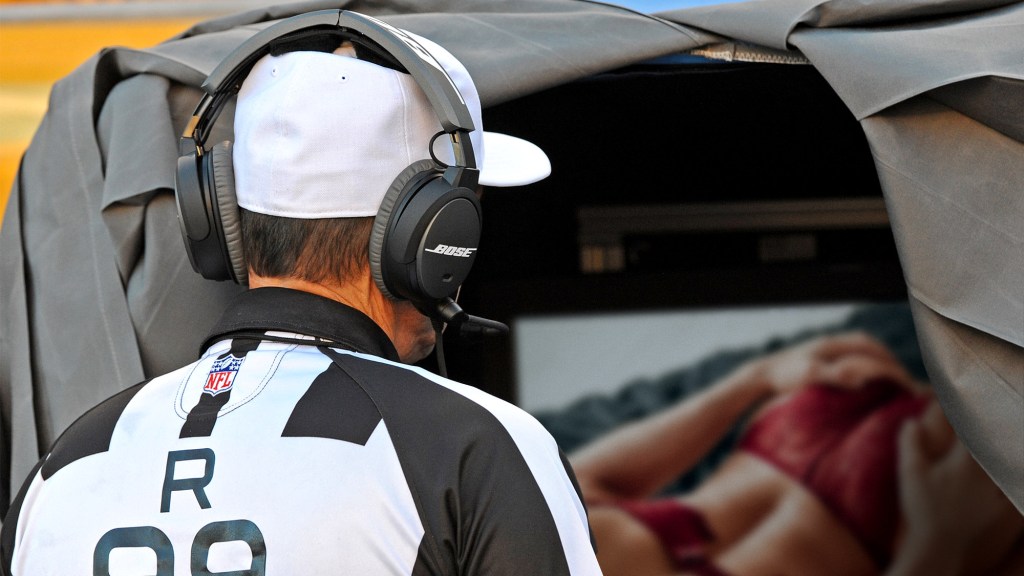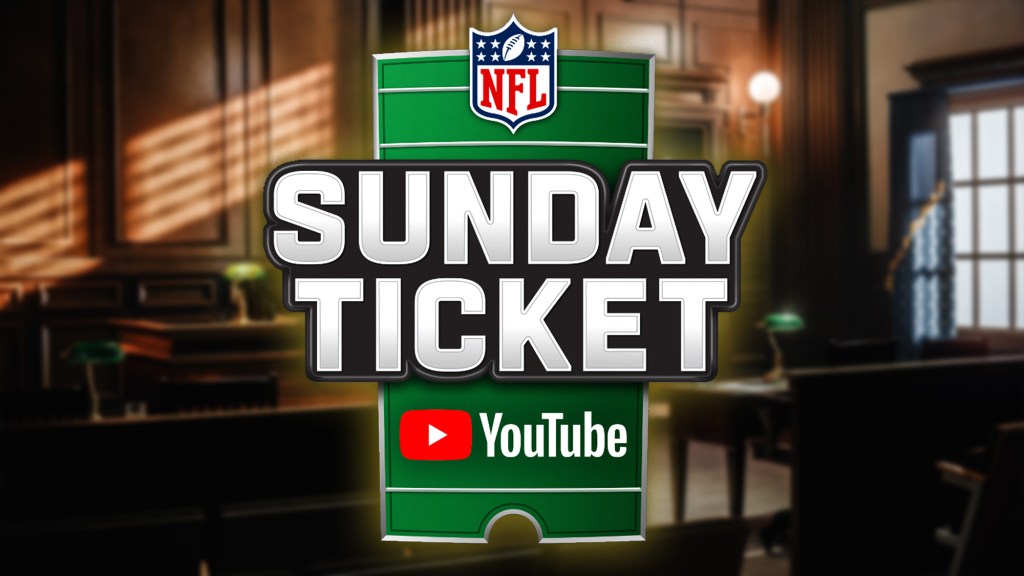LYNDONVILLE, VT—Afflicted from birth with a rare degenerative disease, wheelchair-bound Luke Petrowski has confronted his illness by penning heartfelt verse that touches on elements vital to our lives: love, spirituality, courage, grace, and hope.

His poetry has been collected in the Hopeweavings book series, all of which have been New York Times bestsellers and stand as stirring testaments to the power of faith and love. A sought-after talk-show guest and trusted friend of religious leaders and politicians alike, this home-schooled 9-year-old from small-town Vermont possesses a strength of spirit that has moved and inspired millions.

Yet for all the admiration Luke has won, an unsettling, unspoken sentiment has slowly spread among the American people. Though most will scarcely dare to admit it, the consensus is that young Luke’s poetry is really, really bad.
“I saw Luke on Oprah a few months ago and was amazed by his remarkable poise and courage,” said an Oklahoma homemaker, speaking on condition of anonymity. “But when I read his first Hopeweavings book, I couldn’t deny this feeling that his poetry is actually pretty lousy. I feel horribly guilty saying so, but it’s true.”
The good intentions of Luke’s poetry, coupled with his heartbreaking illness, make it difficult for Americans to recognize and acknowledge the poor quality of his work. The poems are fraught with saccharine sentimentality, slapdash mixed metaphors, and endless clichés involving rivers and the sun. One example from “What’s Most Important,” a poem in his most recent book, Offering Of Hopeweavings:
The things that are important in life / Are not wealth and fame / But the sun peering through the clouds / Its light shining on flower petals / And warming a kitten’s nose / Making everything beautiful / Because that is what God wants / For us to be happy.
“Please don’t hate me for what I’m about to say,” said an unidentified 44-year-old male from Syracuse, NY. “I’m not against a disabled child having a creative outlet. And I don’t expect Shakespeare here. But ’flower petals’? ’Warming a kitten’s nose’? It’s terrible. And notice how, toward the end, he always has to shoehorn in a reference to God. Almost every single poem is like that.”
In “Breakfast Time,” Luke likens his favorite meal of the day to spiritual redemption:
Opened my eyes to the sunrise / I can smell oatmeal and toast and juice / My favorites! / The sun’s rays stream through my window / Taking away the darkness / The branches that scratched against my window all night / Are warmed in the sun’s heat / Wasn’t I silly to ever doubt or fear? / Mom is bringing my breakfast tray up to my room / There’s oatmeal and toast / And juice! / Thank you, God, for this brand-new day / Another day to weave a new tapestry of hope.

The poem troubled a San Francisco bookstore employee, identified only as “Veronica.”
“I don’t consider myself some bitter, cynical crank who can’t appreciate sincere sentiment,” Veronica said. “But the unrelenting cheerfulness is a bit much. When I read one of these Hopeweavings poems, I want to open my shirt collar and go out for air. God is always near, children are always special, and the sun is forever shining. I feel like somebody’s cramming a rainbow down my throat.”
While Veronica and others wrestle with their guilt, Luke’s fans eagerly await the January publication of his ninth book, Grace Of Hopeweavings.
“Hopeweavings books belong on every bookshelf in America,” said Lubbock, TX, realtor Mary Ellen Buford. “Almost all my friends and colleagues have copies of Luke’s books, and I highly recommend them to anyone. Luke is a living saint. I don’t claim to get everything he writes, but that’s how incredible this boy is. He has things to teach us that will take most of us a lifetime to understand.”
This past April, Nicholas Farmer, 37, a technical-support specialist for a Boston telecommunications firm, attended a motivational seminar which featured Luke as a guest speaker.
“His poem about a conversation with an angel moved a lot of us to tears,” Farmer said. “Watching that frail, brave little boy recite his poetry to a rapt audience is something I won’t soon forget.”
Moved by the experience, Farmer bought Luke’s fifth book, Hopeweavings: Heaven’s Just A Hug Away. Yet halfway through the book, even Farmer began to question its artistic merit.
“As I’m reading one of the poems—I think it was ’Another Shiny Day’—I’m thinking, can’t Luke just draw pictures for his fridge?” Farmer said. “Or, better yet, not do anything artistic or spiritual at all, and just play video games? Am I just being a huge asshole? Probably.”







